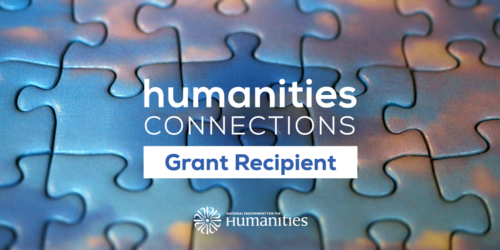 Fontbonne University has received a $100,000 Humanities Connection grant from the National Endowment for the Humanities, supporting a collaborative, academic project building connections between the humanities and other disciplines. This is the second NEH grant awarded to the university within the past four months, a rare occurrence, according to Fontbonne officials. (An NEH Humanities Access grant was awarded in December.) The university is one of only two Humanities Connection grant awardees in the state of Missouri.
Fontbonne University has received a $100,000 Humanities Connection grant from the National Endowment for the Humanities, supporting a collaborative, academic project building connections between the humanities and other disciplines. This is the second NEH grant awarded to the university within the past four months, a rare occurrence, according to Fontbonne officials. (An NEH Humanities Access grant was awarded in December.) The university is one of only two Humanities Connection grant awardees in the state of Missouri.
The three-year, NEH-funded project, “Primary Source: Memory and the Construction of Identity across Time and Place,” creates interdisciplinary collaborations between three departments within Fontbonne, as well as the university’s Jack C. Taylor Library, and a partnership with the Missouri History Museum. The departments of History, Philosophy, and Religion; English and Communication; and Behavioral Sciences will all develop new courses united around the common theme of memory. The project will culminate with Fontbonne University’s fall 2019 Dedicated Semester, an annual, university-wide academic experience that focuses on common theme.
“We’re interested in exploring memory, particularly with regard to the ways in which it creates identity for individuals and collectives as they move through time and place,” said Dr. Corinne Wohlford, associate vice president for academic affairs and the project’s director. “By introducing students to the technologies of memory, whether in psychology or in museum and library work, we will help them envision careers that they might not have imagined otherwise.”
NEH grants are highly competitive; this project was one of only 208 humanities projects funded nationwide.
“These NEH grants recognize the excellence of our faculty and the innovative ways they are integrating traditional liberal arts disciplines with modern technologies and needs,” said Dr. Adam Weyhaupt, dean of the College of Arts and Sciences. “The humanities help us to understand who we are, and this grant will help more students see the value of the humanities in our lives.”
Students in the project will digitize and archive the work of the Bosnia Memory Project, developed at Fontbonne in 2006, which collects and preserves the memories of the Bosnian diaspora in St. Louis, the largest settlement of Bosnians anywhere in the world outside of Bosnia. The effort will allow scholars from around the world to access these materials.
“Although our interest is not limited to the Bosnian population, their particular experiences offer engaging and challenging questions for scholars of memory from any field,” Wohlford said. “How do technological advancements change not only the ways in which we store memories but also the frames for our understanding of them? How does national, racial or ethnic identity shape memory or vice versa? How does psychology help us understand the limitations of memory, especially memories shaped by trauma?”
Project organizers have developed extensive experiential opportunities for students:
- A conference on the topic of memory will be held in 2018.
- In the psychology course, students will engage in memory experimentation with camerawork that will explore ideas of autobiographical memory and perception.
- Students will work directly with history museum staff to learn about creating digital archives.
- In other courses, students will gather oral histories from second-generation Bosnians in Saint Louis, archive the content of the existing Bosnia Memory Project, and create exhibits in real and virtual galleries, while being grounded in important theoretical and ethical considerations for how to do such work.
Fontbonne faculty involved in the project include Wohlford, Dr. Jason Finley, assistant professor of psychology, Dr. Ben Moore, associate professor of English and the director of the Bosnia Memory Project, and Julie Portman, technical services and metadata librarian. The Missouri History Museum’s Dr. Jody Sowell, director of exhibitions and research, and Dr. Angie Dietz, director of digital initiatives, serve as additional collaborators and instructors.
The project — and its NEH funding — will commence in May 2017 and conclude in May 2020.
Call for papers.

